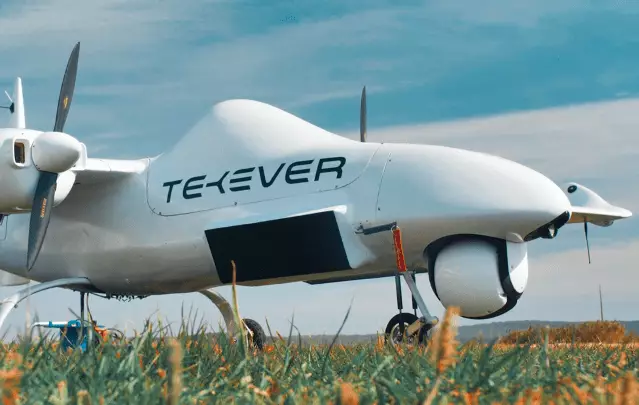The technology landscape is undergoing rapid transformations, particularly in the realm of unmanned aerial vehicles (UAVs). One of the standout players in this evolving industry is Tekever, a dual-use drone startup that has successfully harnessed investment to further its mission and broaden its horizons. The company recently secured €70 million (around $74 million) in funding, a significant leap that aligns with the increasing sophistication and versatility of drone technology, propelled by recent geopolitical events such as the war in Ukraine. This article delves into the company’s strategic moves, the implications of its advancements, and the broader market dynamics at play.
Tekever’s funding highlights a critical shift in defense technology, where startups are beginning to carve out niches that were once the domain of established aerospace giants. With the backing of reputable investors like Scottish firm Baillie Gifford and the NATO Innovation Fund, the company is poised to not only expand its product offerings but also penetrate new markets—primarily the United States. The interest from the NATO Innovation Fund, which was established to foster innovations relevant to NATO’s defense strategy, underscores the growing recognition that agile startups can drive significant advancements in military technologies.
Tekever’s operations reflect a broader movement in which smaller, tech-centric companies apply innovative approaches to defense challenges. Unlike traditional defense primes that often work within a bureaucratic framework, Tekever offers a streamlined, vertically integrated model that allows for rapid design, manufacturing, and adaptation of drone systems. This operational agility positions Tekever to respond effectively to the increasingly complex landscape of modern warfare where the requirements can rapidly evolve.
The rapid evolution of drone technology is being catalyzed by urgent demands arising from ongoing conflicts, with Ukraine serving as a pivotal example. The necessity for advanced surveillance and precision-strike capabilities in Ukraine has accelerated technological investments and innovations. This environment of heightened necessity is reflected not only in Tekever’s funding success but also in the rising influx of investment into similar UAV startups across Europe. The company’s surveillance drones have already demonstrated their utility in civilian applications, such as monitoring illegal activities in the English Channel, thereby indicating the dual-use potential of their technology.
The ARX drone, Tekever’s flagship, stands out by its capability to manage swarms of smaller drones, effectively transforming it into a versatile tool for various operations, whether military, commercial, or humanitarian. Such multifunctionality demonstrates the enterprise’s commitment to innovation and adaptability, traits that are increasingly necessitated by modern geopolitical realities.
While Tekever’s trajectory appears promising with its strong funding rounds—having also raised €20 million in 2022—it faces significant challenges. The CEO, Ricardo Mendes, emphasizes the urgent need for Europe to bolster its technological capabilities in the defense sector. With geopolitical tensions rising, the pressure is on not only to innovate but also to ensure that technological advancements translate into tangible security solutions.
Moreover, as drone regulations become increasingly stringent and privacy concerns grow, Tekever will need to navigate complex regulatory environments in its target expansion markets. The competitive landscape is also growing, as numerous startups vie for attention and investment within the UAV sector. To maintain its pioneering status, Tekever must continue to innovate while effectively communicating the value proposition of its technology to both governmental and commercial entities.
Tekever represents a microcosm of the larger transformation occurring within the defense technology space. As it embarks on this ambitious journey armed with new funding and a clear vision for growth, the implications extend beyond the confines of mere profitability. The company’s success will have far-reaching effects on both civilian and military aviation landscapes.
The path ahead is fraught with challenges, yet the potential for innovation and disruption is staggering. As Europe navigates its security landscape amid evolving threats, the role of startups like Tekever in pioneering drone technology cannot be overstated. The future indeed looks promising for this innovative firm ready to redefine the boundaries of what drones can accomplish.

